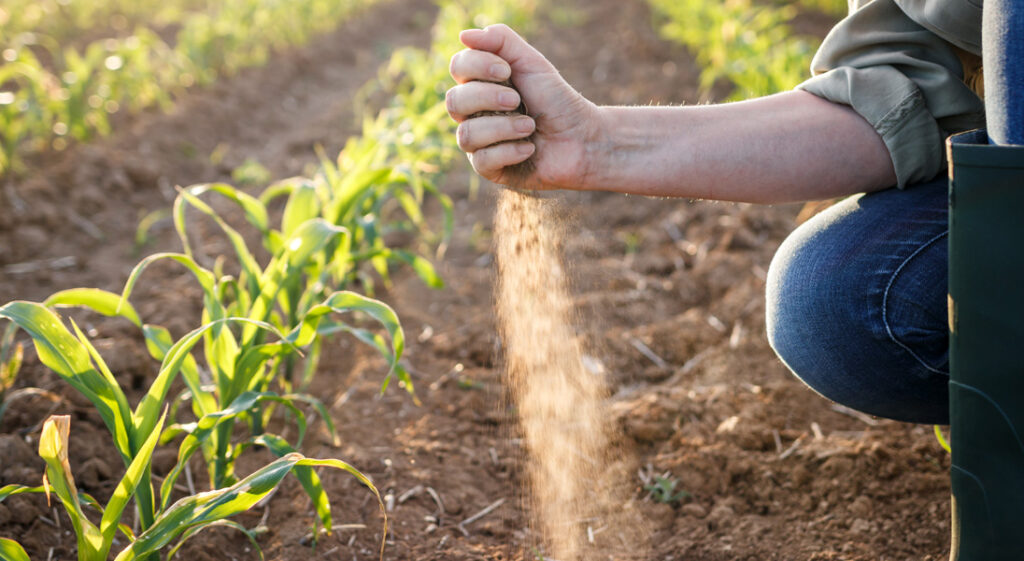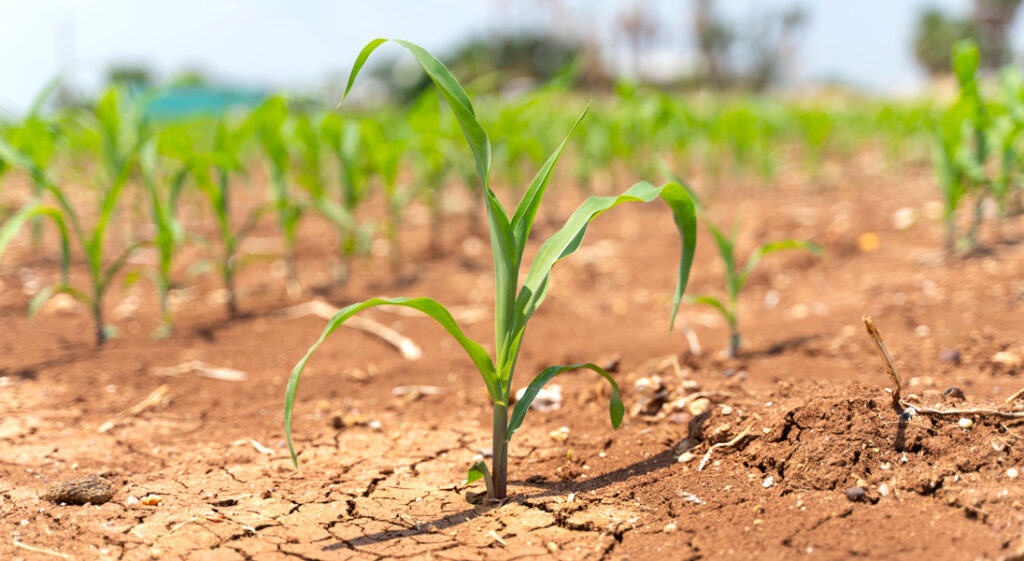Maxstim for Grapes increases the growth, yield and quality of dessert grapevines
Laboratory, glasshouse and commercial field trials have demonstrated that the Maxstim range of biostimulants will increase growth, enhance yields and improve quality in a wide range of agricultural and horticultural crops. The Maxstim team are continually extending their knowledge on how best to support growers in their use of biostimulants by conducting research and efficacy trials on new crops and crop varieties.
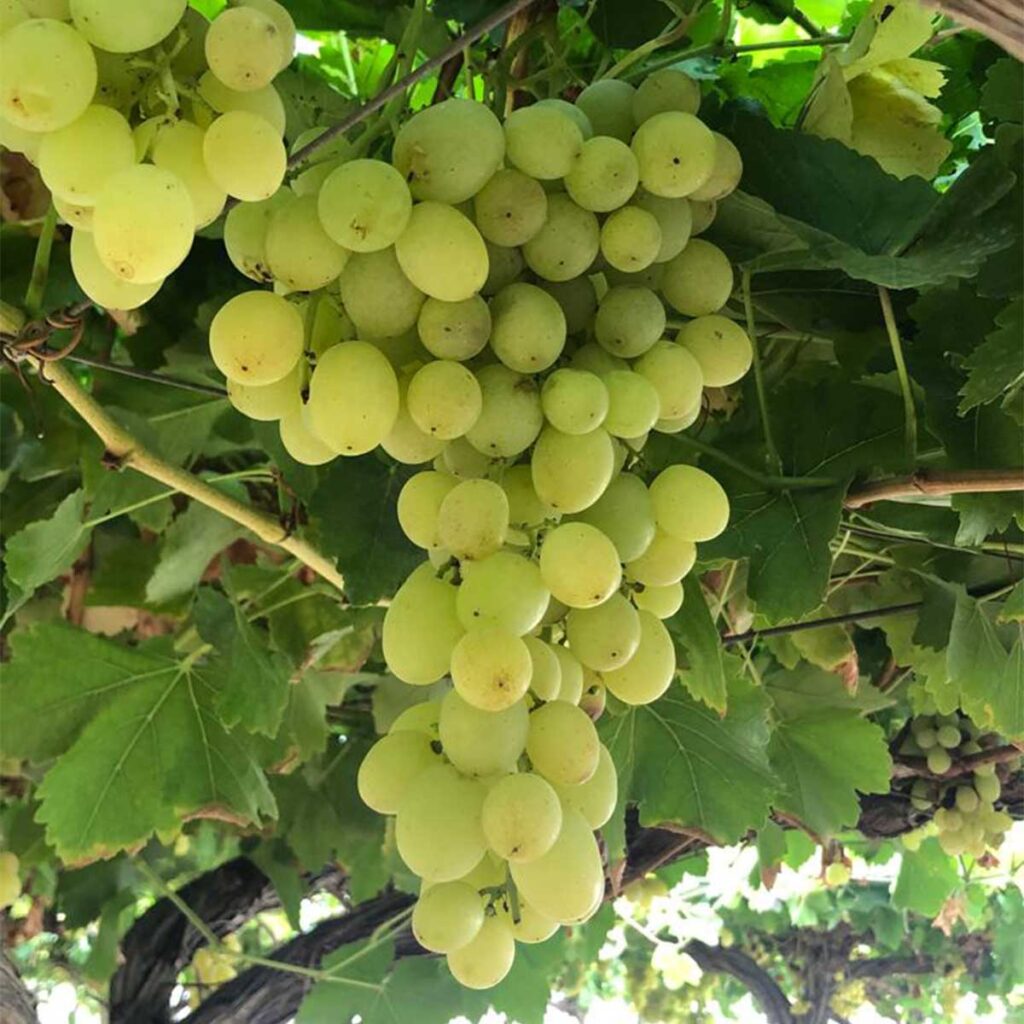
Europe is the largest grape producer in the world, yielding over 20 million tonnes per year, and table grapes are among the most popular fruits consumed across the region. During 2021, a series of trials were carried out to determine the benefits of using Maxstim for Grapes on dessert grapes on two farms in Alicante, Spain.
In both trials, growers applied 5 l/ha of Maxstim for grapes through the irrigation system every 15 days, starting in March and finishing in October.
Results summary
The use of Maxstim for Grapes throughout the season increased the crop yield by 44%. Key phenotype improvements were made during the vine development. The grower witnessed larger and stronger stem development, faster vertical growth and increased chlorophyll production. The grape bunches were heavier, more numerous and the individual grapes were larger.
Establishing new grapevines
On commercial farms, successfully establishing new vines is an important agronomic target. Enhanced young growth can enable earlier grape production and increase yields over the lifetime of the grapevines.
Vertical growth: At the trial sites, a key point in the grapevine cultivation process is attaining sufficient vertical plant growth to enable the vines to grow horizontally across elevated support wires.
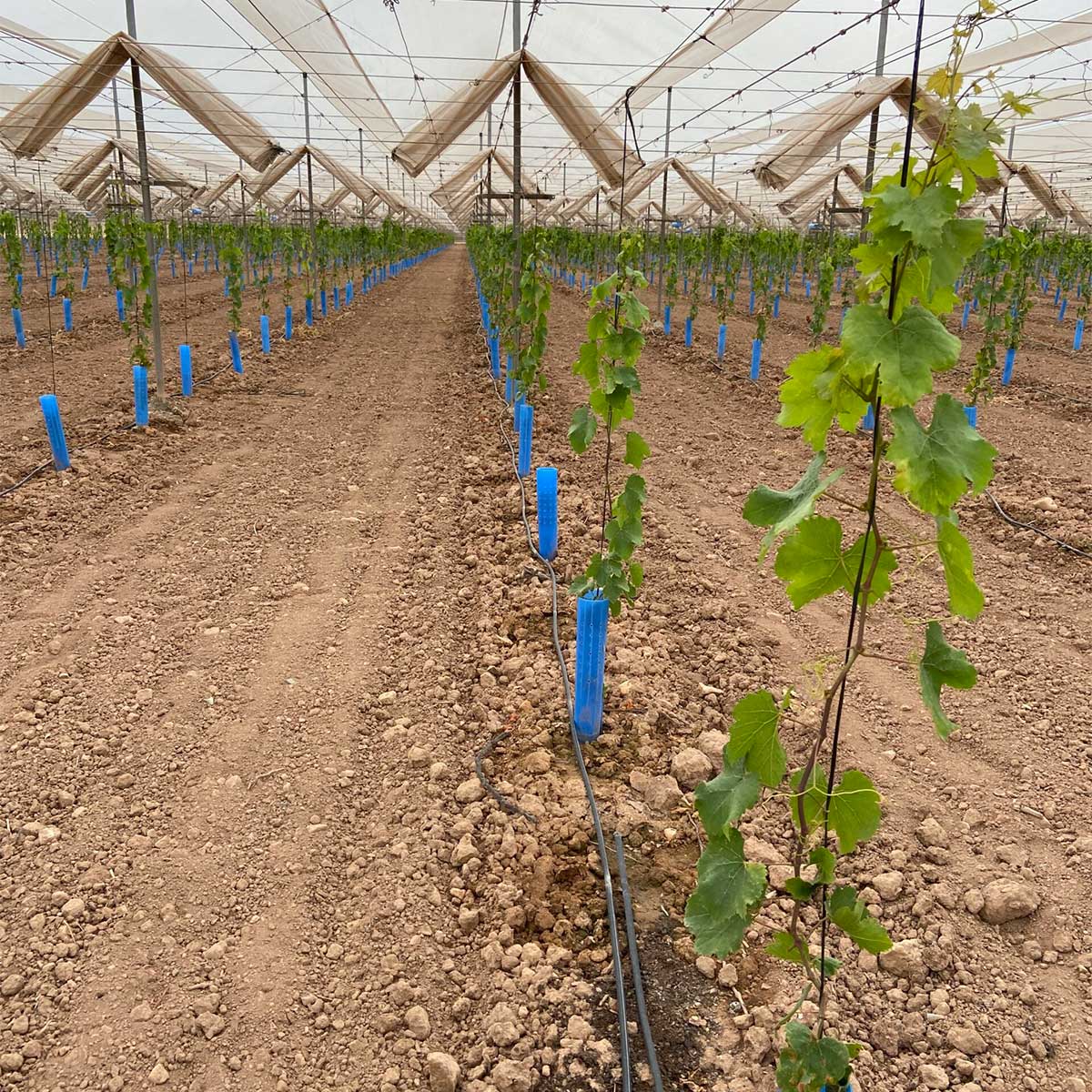
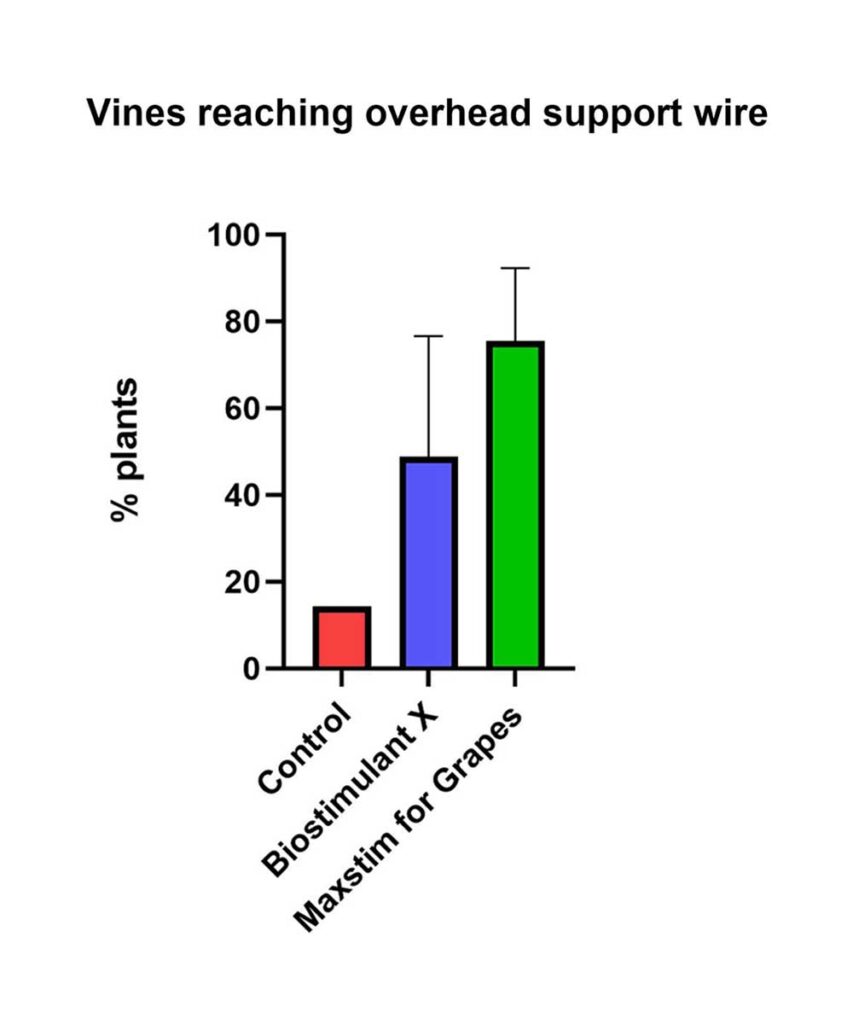
The trial at farm 1 compared the effects of Maxstim for Grapes (and another commercial biostimulant – Biostimulant X) on the vertical growth of young grapevines recently transplanted onto the production site. Five months after the first biostimulant application, we assessed grapevine vertical growth.
Both biostimulants had a significant effect on grapevine vertical growth but Maxstim for Grapes treatment showed the best response, with 75% of the plants reaching the support wires. Only 14% of vines in the untreated control area exhibited this level of vertical growth.
The diameter of main grapevine stems was also measured, and again Maxstim for Grapes treated vines showed significantly better stem growth than untreated vines and vines treated with Biostimulant X.
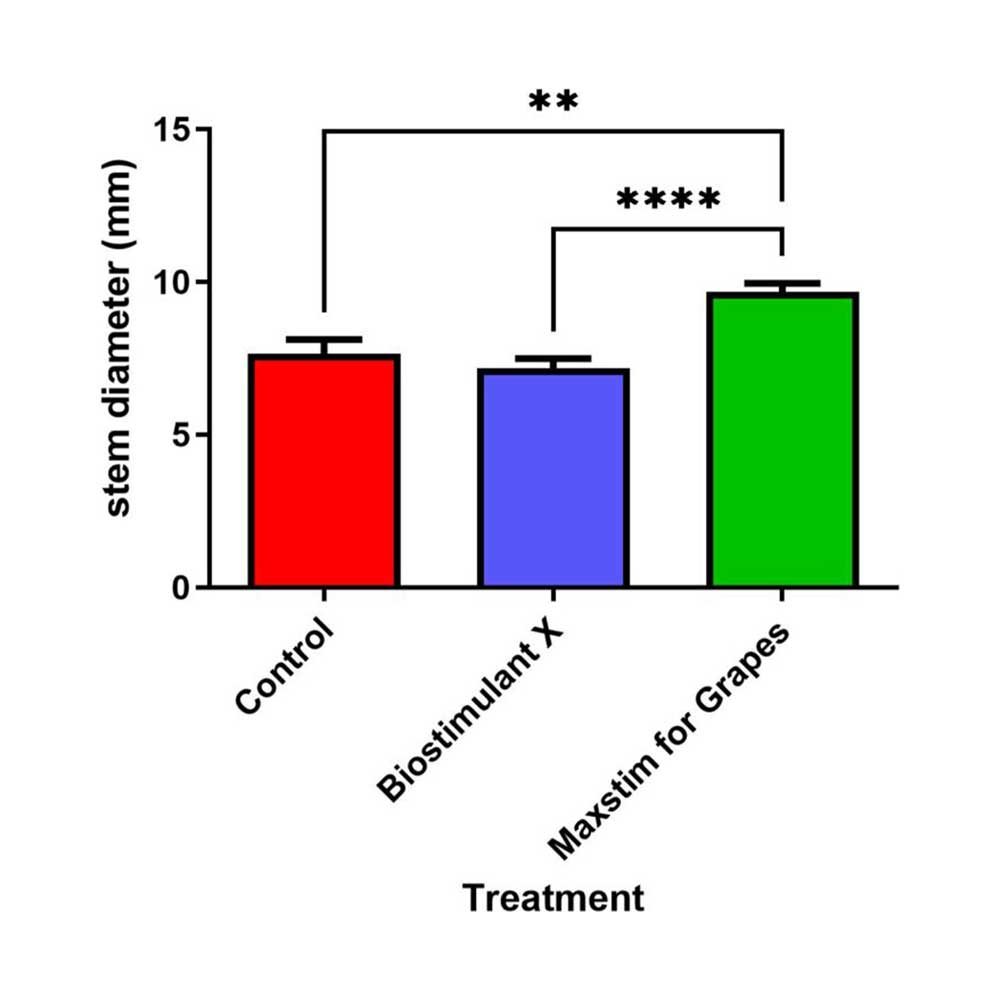
At the second farm, we assessed the effects of Maxstim for Grapes on fruiting vines.
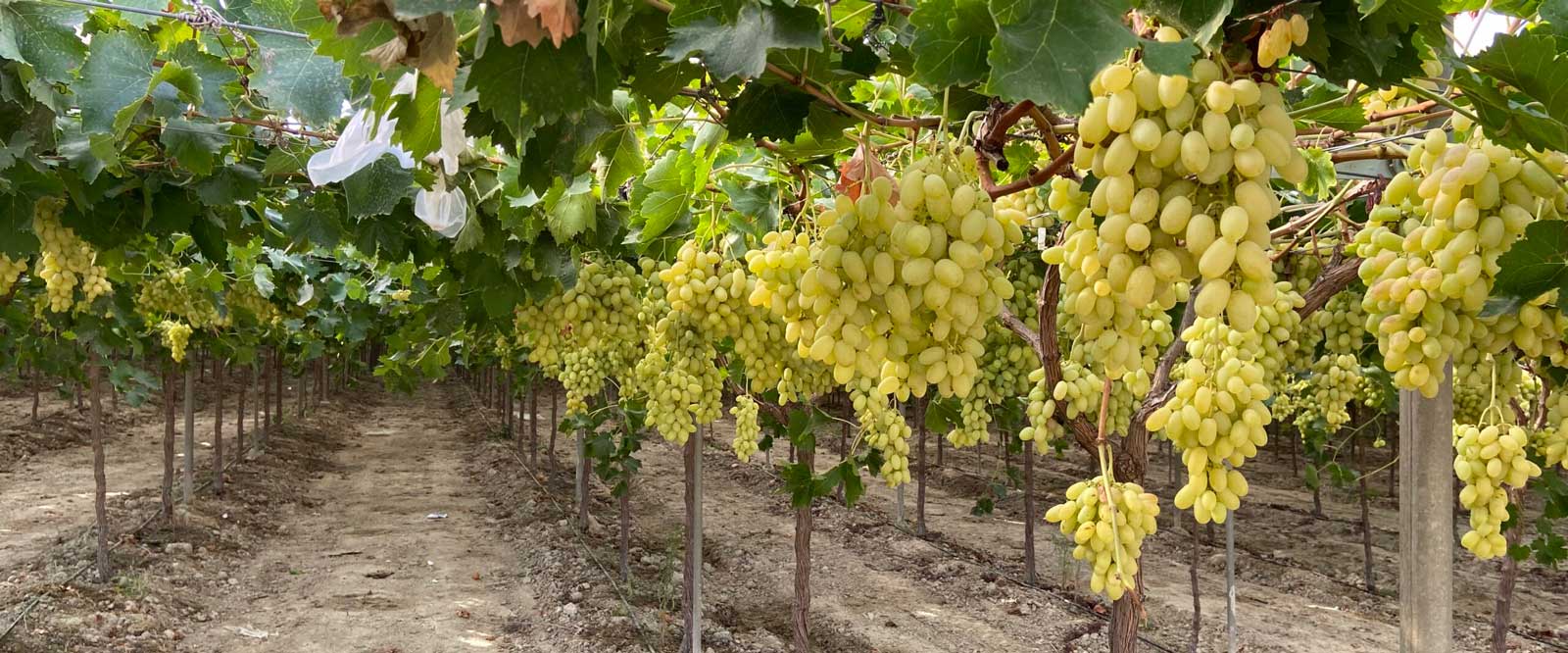
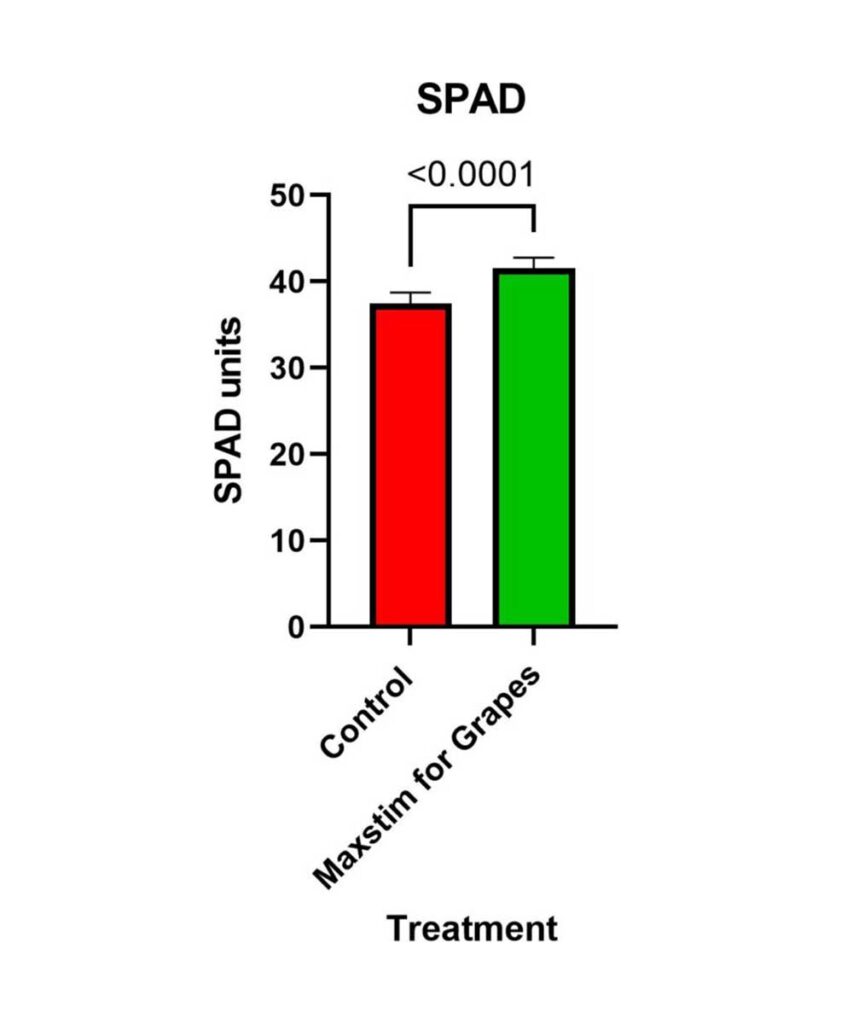
One of the most important aspects of plant growth is the level of photosynthesis occurring in the leaves. This process is the source of the plant’s carbohydrate supply and therefore has a significant effect on growth and crop yield. Both laboratory tests and field trials have shown that Maxstim biostimulants will upregulate the level of photosynthesis in a wide range of crops.
Seven months into the trial we measured the level of chlorophyll in the commercial grapevines using a SPAD meter and found significantly higher chlorophyll concentrations in leaves treated with Maxstim for Grapes.
The impact of Maxstim for Grapes was also apparent when we examined fruit size, with both grape diameter and grape length significantly increased in treated plants.
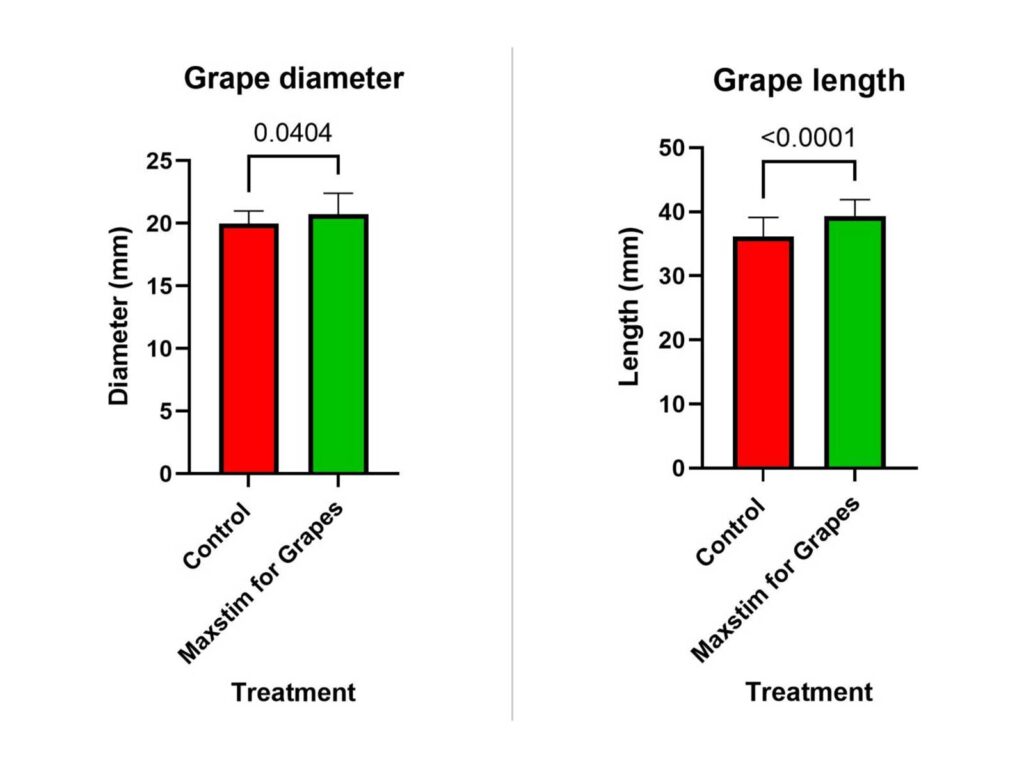
The Maxstim treated vines also produced significantly heavier bunches of grapes.
This increase in fruit weight was reflected in the commercial yields found by the grower.
In the control area (5.5 hectares) 198.200 kg were collected giving a yield of 36.036 kg/ha. The treated area of 4.5 hectares produced 233.609 kg, a yield of 51.913 kg/ha
Our 2021 trials in grapevines have confirmed the positive impact of Maxstim biostimulants on grapevine production and mirror the effects we see on other soft fruits including, raspberries, blueberries and strawberries. Further efficacy trials on grapevines are progressing during 2022 and we are confident that the use of Maxstim biostimulants can contribute significantly to European grape production, helping maintain yields and fruit quality, whilst reducing nutrient input requirements and minimizing the effects of abiotic stress in crops.
